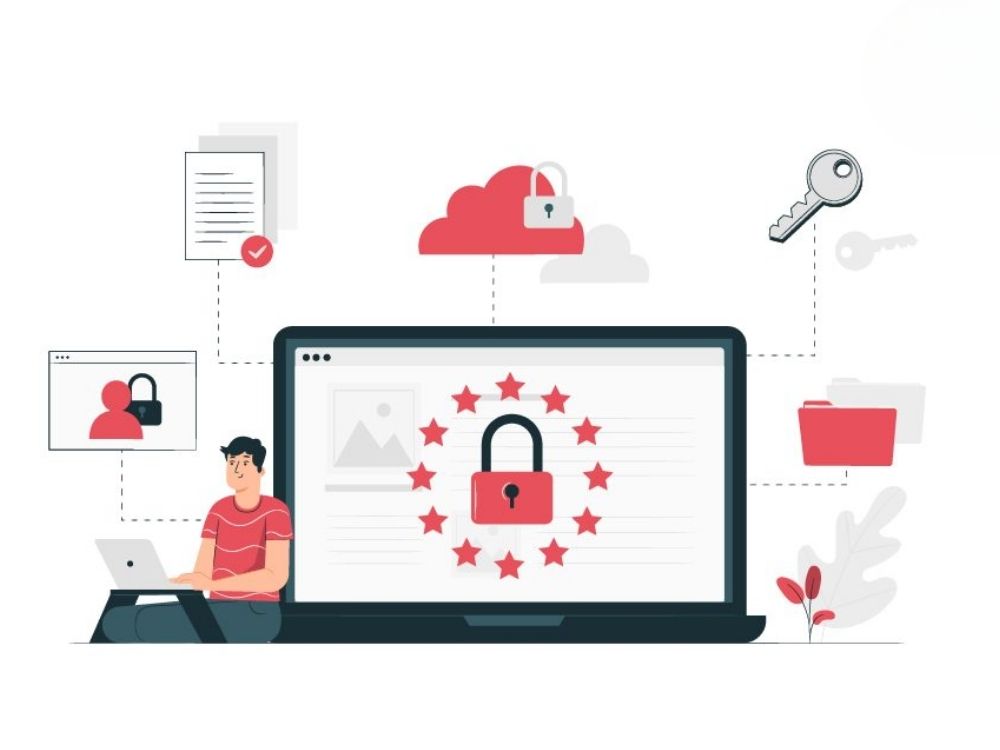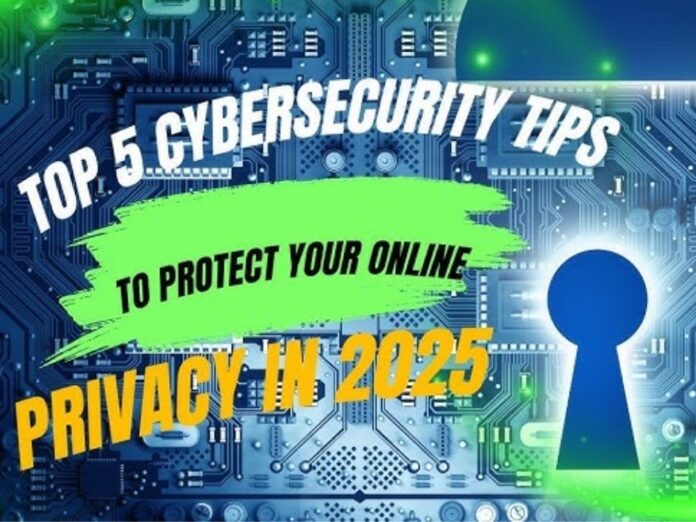In today’s digital age, protecting your online privacy has become more critical than ever before. With the increasing number of cyber threats, every internet user must stay informed and proactive. Whether you’re shopping online, browsing social media, or using internet banking, the safety of your data should be a top priority. In this article, we will cover the top 5 cybersecurity tips to protect your online privacy that can help you stay safe and secure.
1. Use Strong, Unique Passwords for Every Account
Your password is the gateway to your data. Weak passwords make it easy for hackers to gain access to your accounts. Create strong, unique passwords that combine upper- and lower-case letters, numbers, and symbols. Avoid using common phrases or easily guessable information like birthdays. Using a password manager can also help you generate and store strong passwords securely.
Moreover, never reuse passwords across multiple sites. If one account is compromised, others become vulnerable. Make it a habit to regularly update your passwords and avoid storing them in plain text on your devices.

2. Enable Two-Factor Authentication (2FA)
Two-factor authentication adds an extra security layer beyond just a password. Even if someone manages to obtain your password, 2FA will stop them from accessing your accounts without a second verification step. This second factor is often a code sent to your phone, an email, or generated via an app.
Many popular websites and apps now support 2FA, including Google, Facebook, and most banking institutions. Enabling 2FA for critical accounts will make it much harder for cybercriminals to breach your data.
3. Beware of Phishing Attacks
Phishing attacks are deceptive attempts by hackers to trick you into revealing sensitive information like passwords and credit card details. These attacks usually come in the form of emails or messages that appear to be from trusted sources.
Always scrutinize the sender’s email address, avoid clicking suspicious links, and double-check before sharing any personal information. If you receive an unexpected message from your bank or another service provider asking for credentials, verify its authenticity through official channels before responding.
4. Keep Software and Devices Updated
Outdated software is a breeding ground for vulnerabilities that hackers exploit. Regularly update your operating system, browsers, and applications to patch security holes. Software companies continually release updates to improve security and performance, so make use of them.
Also, turn on automatic updates when possible. Whether it’s your phone, laptop, or apps, staying updated ensures you’re protected against the latest cyber threats. Ignoring updates could expose your system to malware and data breaches.
5. Use a VPN for Private Browsing
Public Wi-Fi networks are notorious for being insecure. A Virtual Private Network (VPN) encrypts your internet connection and hides your IP address, making your browsing activity private and secure.
Using a VPN is particularly important when accessing sensitive accounts over public networks, like in coffee shops, airports, or libraries. A good VPN provider will ensure your data is encrypted and safe from prying eyes.
Conclusion
Cybersecurity is not just for IT professionals; it’s for everyone who uses the internet. By following these top 5 cybersecurity tips to protect your online privacy, you can significantly reduce your chances of falling victim to cyberattacks. Start today by creating stronger passwords, enabling two-factor authentication, staying cautious of phishing scams, updating your devices, and using a VPN for secure browsing.
Remember, your privacy is in your hands. Stay alert, stay secure, and encourage others to do the same.









